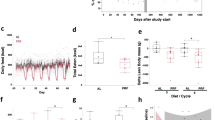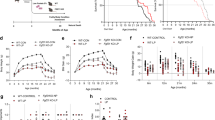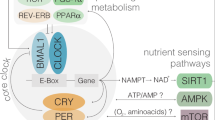Abstract
Dietary energy restriction is the only proven method for extending lifespan and slowing aging in mammals, while maintaining health and vitality. Although the first experiments in this area were conducted over 60 y ago in rodents, possible applicability to primates has only been examined in controlled studies since 1987. Our project at the National Institute on Aging began with 3-0 male rhesus and 30 male squirrel monkeys of various ages over their respective life spans. Subsequently, it has been expanded to include female rhesus monkeys, and several other laboratories have initiated related studies. Experimental animals are generally fed 30% less than controls, and diets are supplemented with micronutrients to achieve undernutrition without malnutrition. These calorically restricted (CR) monkeys are lighter, with less fat and lean mass than controls. Bone mass is also slightly reduced, but in approximate proportion to the smaller body size. CR animals mature more slowly and achieve shorter stature than controls as well. Metabolically, CR monkeys have slightly lower body temperature and initial energy expenditure following onset of restriction, and better glucose tolerance and insulin sensitivity. The latter suggest a reduced predisposition towards diabetes as the animals age. Other potential anti-disease effects include biomarkers suggestive of lessened risk of cardiovascular disease and possibly cancer. Candidate biomarkers of aging, including the age-related decrease in plasma dehydroepiandrosterone sulfate (DHEAS), suggest that the CR animals may be aging more slowly than controls in some respects, although sufficient survival data will require more time to accumulate. In summary, nearly all CR effects detected in rodents, which have thus far been examined in primates, exhibit similar phenomenology. Potential applicability of these beneficial effects to humans is discussed.
European Journal of Clinical Nutrition (2000) 54, Suppl 3, S15–S20
This is a preview of subscription content, access via your institution
Access options
Subscribe to this journal
Receive 12 print issues and online access
$259.00 per year
only $21.58 per issue
Buy this article
- Purchase on Springer Link
- Instant access to full article PDF
Prices may be subject to local taxes which are calculated during checkout
Similar content being viewed by others
Author information
Authors and Affiliations
Corresponding author
Rights and permissions
About this article
Cite this article
Roth, G., Ingram, D., Black, A. et al. Effects of reduced energy intake on the biology of aging: the primate model. Eur J Clin Nutr 54 (Suppl 3), S15–S20 (2000). https://doi.org/10.1038/sj.ejcn.1601020
Published:
Issue Date:
DOI: https://doi.org/10.1038/sj.ejcn.1601020
Keywords
This article is cited by
-
Impact of moderate calorie restriction on testicular morphology and endocrine function in adult rhesus macaques (Macaca mulatta)
AGE (2014)
-
No change in skeletal muscle satellite cells in young and aging rat soleus muscle
The Journal of Physiological Sciences (2009)
-
Long-term Exposure of Variable Dietary Protein-to-Carbohydrate Ratio: Effect on Brain Regional Glutamatergic Activity with Age
Neurochemical Research (2008)
-
Aging in male primates: reproductive decline, effects of calorie restriction and future research potential
AGE (2008)
-
Late onset of dietary restriction reverses age-related decline of malate–aspartate shuttle enzymes in the liver and kidney of mice
Biogerontology (2008)



